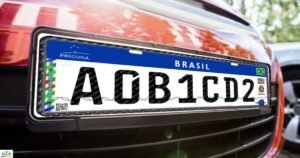License plates are a ubiquitous feature of modern transportation systems, serving as unique identifiers for vehicles. There’s a common misconception that one can easily trace the owner’s address through their license plate number.
In this article, we’ll explore the legality, methods, and limitations surrounding the quest to locate someone’s address using their license plate.
Understanding License Plates and Their Purpose
License plates, also known as vehicle registration plates or tags, are metal or plastic plates attached to motor vehicles. They typically display a unique alphanumeric code assigned to the vehicle by the issuing authority. These codes vary widely between jurisdictions but usually consist of a combination of letters, numbers, or both.
The Legality of Tracing Addresses via License Plates

Despite the prevalence of the notion, attempting to trace someone’s address through their license plate is not a straightforward or legal process in most jurisdictions.
Legal Restrictions
Most countries have strict privacy laws governing the release of personal information, including addresses. Accessing someone’s address through their license plate without proper authorization is often illegal and can result in severe penalties, including fines and imprisonment.
Data Protection Laws
In many regions, there are specific data protection laws in place to safeguard individuals’ personal information. This includes information linked to license plate numbers, which is typically considered sensitive data.
Law Enforcement Access
While law enforcement agencies may have the authority to access license plate databases for legitimate purposes such as investigations, private individuals do not typically have this privilege.
Methods and Limitations of Locating Addresses

While there are methods purported to trace addresses through license plates, including whether ‘Are All License Plate Frames The Same Size?’, these approaches are often speculative and legally questionable.
Online Databases
Several online platforms claim to offer access to license plate databases, promising to provide vehicle owner information, including addresses, for a fee. The reliability and legality of these services are dubious, as they may rely on outdated or inaccurate data.
Reverse Image Search
Some individuals attempt to locate addresses by taking a photo of a vehicle’s license plate and conducting a reverse image search online. While this may yield results in some cases, it’s not a guaranteed method and may infringe on privacy laws.
Social Engineering
Unscrupulous individuals may resort to social engineering tactics to obtain someone’s address using their license plate number. This could involve manipulating individuals or organizations with access to such information, posing as law enforcement officials, or exploiting vulnerabilities in systems.
The Role of Law Enforcement and Privacy Concerns
| Topic | Description |
| Automated License Plate Recognition (ALPR) | ALPR systems automatically capture and store images of license plates, raising privacy concerns. |
| Data Retention Policies | Policies regarding the storage and retention of license plate data vary, impacting privacy rights. |
| Misuse of Data | Concerns exist about potential misuse or unauthorized access to license plate data by authorities. |
| Legal Framework | There’s ongoing debate about the legal framework governing the use of license plate data by law enforcement. |
| Public Perception | Public perception of ALPR systems and data retention policies influences discussions on privacy concerns. |
Law enforcement’s use of technology like ALPR systems raises valid privacy concerns, necessitating robust legal frameworks and public dialogue.
FAQ’s
How do online databases claim to locate addresses using license plates?
Online databases often promise access to vehicle owner information, including addresses, but their reliability and legality are questionable.
Is conducting a reverse image search a reliable method to find someone’s address by their license plate?
While it’s attempted, a reverse image search isn’t guaranteed to yield accurate results and may infringe on privacy laws.
Do law enforcement agencies have unrestricted access to license plate data?
Access to license plate data by law enforcement is regulated, with varying policies and legal frameworks governing its use.
Conclusion
While it’s tempting to believe that one can easily find someone’s address by their license plate, the reality is far more complex. Accessing personal information linked to license plates without proper authorization is often illegal and unethical, with severe consequences for those who attempt to do so.
While law enforcement agencies may have legitimate reasons to access license plate data, concerns about privacy, data protection, and misuse persist.
It’s essential for individuals to understand the limitations and legal implications surrounding the quest to trace addresses through license plates and to respect the privacy rights of others.










